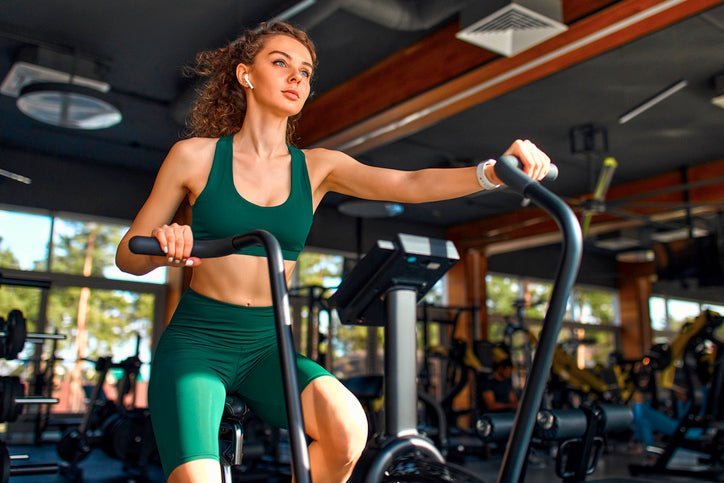- Regular Price
- $19.99
- Sale Price
- $19.99
- Regular Price
- $19.99
- Unit Price
- per
Free Shipping on all US orders over $40

The Benefits of Exercise for Hair Health
Exercise is often touted for its numerous benefits, from improved cardiovascular health to enhanced mental well-being. However, one area that is often overlooked is the positive impact regular physical activity can have on your hair. Yes, you read that right—exercise can be incredibly beneficial for maintaining healthy, vibrant hair. In this comprehensive blog, we'll delve into how exercise affects your hair and why incorporating regular workouts into your routine can lead to lustrous locks.
One of the most significant benefits of exercise for hair health is improved blood circulation. When you engage in physical activities, your heart pumps more blood, increasing the flow to all parts of your body, including your scalp.
How Improved Circulation Helps Your Hair:
2. Reduced Stress Levels

Exercise is a powerful stress reliever. Activities such as yoga, running, and even brisk walking can significantly lower your stress levels by releasing endorphins, the body's natural mood lifters.
How Reduced Stress Benefits Your Hair:
Regular exercise helps in balancing hormones, which is essential for overall health, including the health of your hair. Hormonal imbalances can lead to various hair issues, including hair thinning and excessive shedding.
Hormones and Hair Health:

Sweating during exercise helps flush out toxins from your body. These toxins, if not removed, can contribute to poor scalp health and weakened hair.
Benefits of Detoxification:
Exercise can improve digestion and nutrient absorption, ensuring that your body effectively utilizes the vitamins and minerals necessary for healthy hair.
Key Nutrients for Hair Health:
Sebum is the natural oil produced by your scalp, essential for maintaining hair moisture and health. Exercise can help regulate sebum production.
Benefits of Balanced Sebum Production:

Exercise is known to improve sleep quality, which is vital for overall health and well-being, including hair health.
How Better Sleep Affects Your Hair:
Collagen is a protein that plays a vital role in maintaining the strength and elasticity of your hair. Exercise can boost collagen production in your body.
Benefits of Collagen for Hair:
Incorporating Exercise into Your Routine
To reap the hair benefits of exercise, it's essential to incorporate regular physical activity into your routine. Here are some tips:
The best way to stay consistent with exercise is to choose activities you enjoy. Whether it's dancing, swimming, hiking, or yoga, finding something you love will make it easier to stick with your routine.
Start with realistic goals that fit your lifestyle. Aim for at least 30 minutes of moderate exercise most days of the week. Gradually increase the intensity and duration as you build stamina.
Incorporate a variety of exercises to keep things interesting and work different muscle groups. This can include a mix of cardio, strength training, and flexibility exercises.
4. Stay Hydrated

Proper hydration is crucial for overall health and hair health. Make sure to drink plenty of water before, during, and after your workouts to stay hydrated.
After exercising, it's essential to take care of your hair to prevent damage from sweat and dirt. Rinse your hair with water or a gentle cleanser to remove sweat and build-up. If you don't have time for a full wash, consider using a dry shampoo to refresh your scalp.
Summary
Exercise offers a multitude of benefits that extend beyond physical and mental well-being to include the health of your hair. From improved blood circulation and reduced stress levels to enhanced nutrient absorption and balanced hormone levels, regular physical activity can significantly impact the health and appearance of your hair. By incorporating regular exercise into your routine, you can enjoy not only a fitter, healthier body but also stronger, shinier, and more vibrant hair. So, lace up those sneakers, hit the gym, or roll out your yoga mat—your hair will thank you!